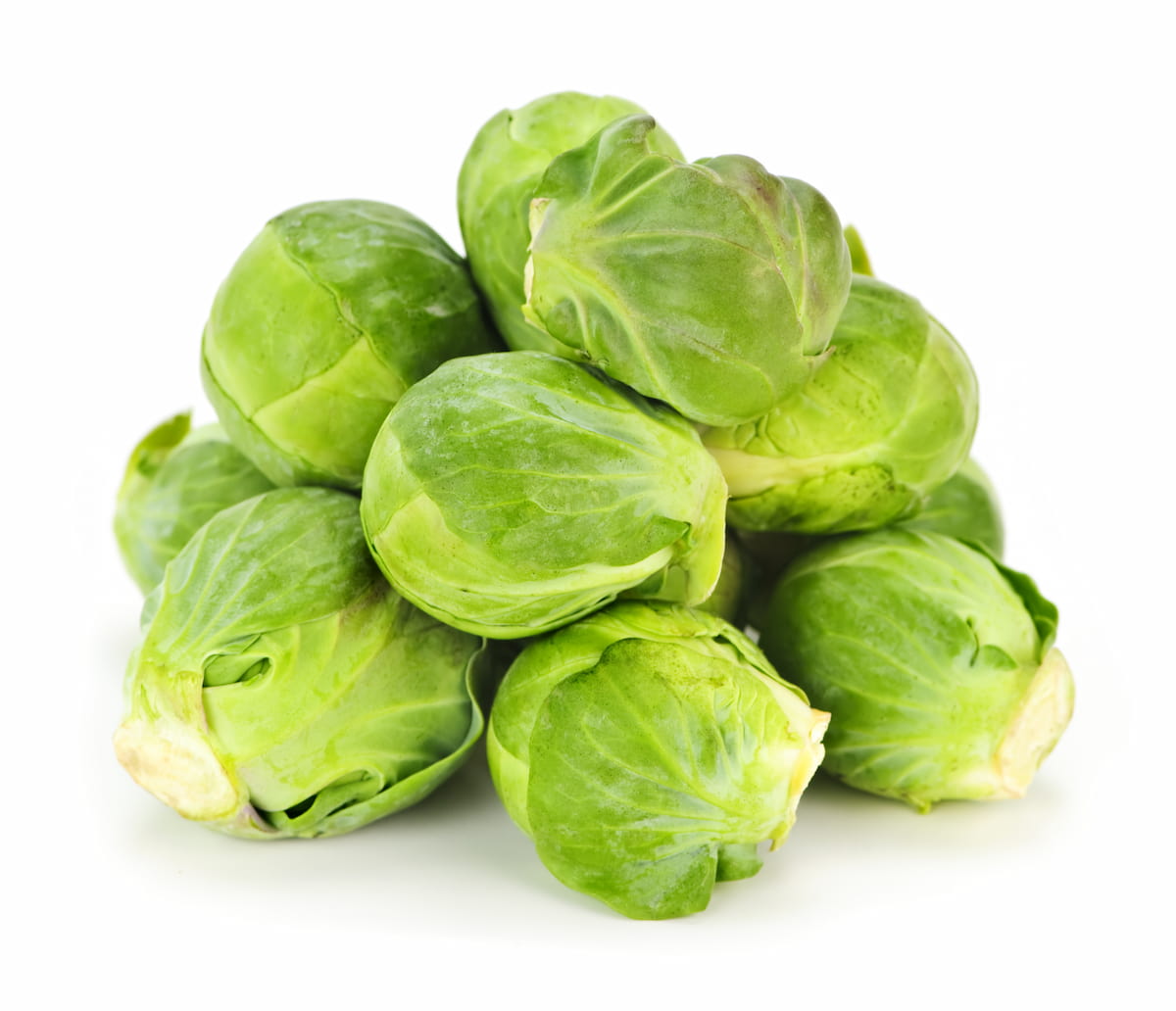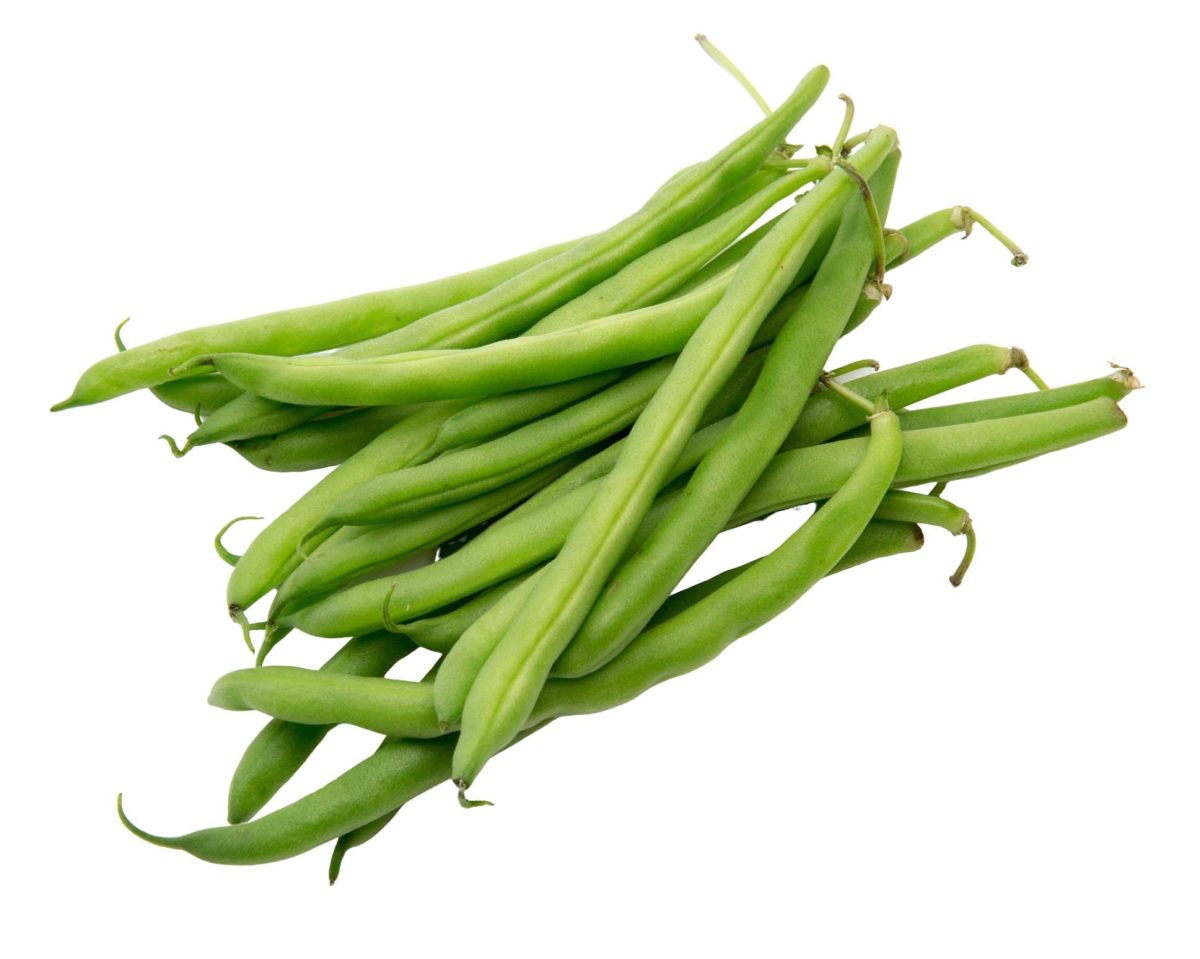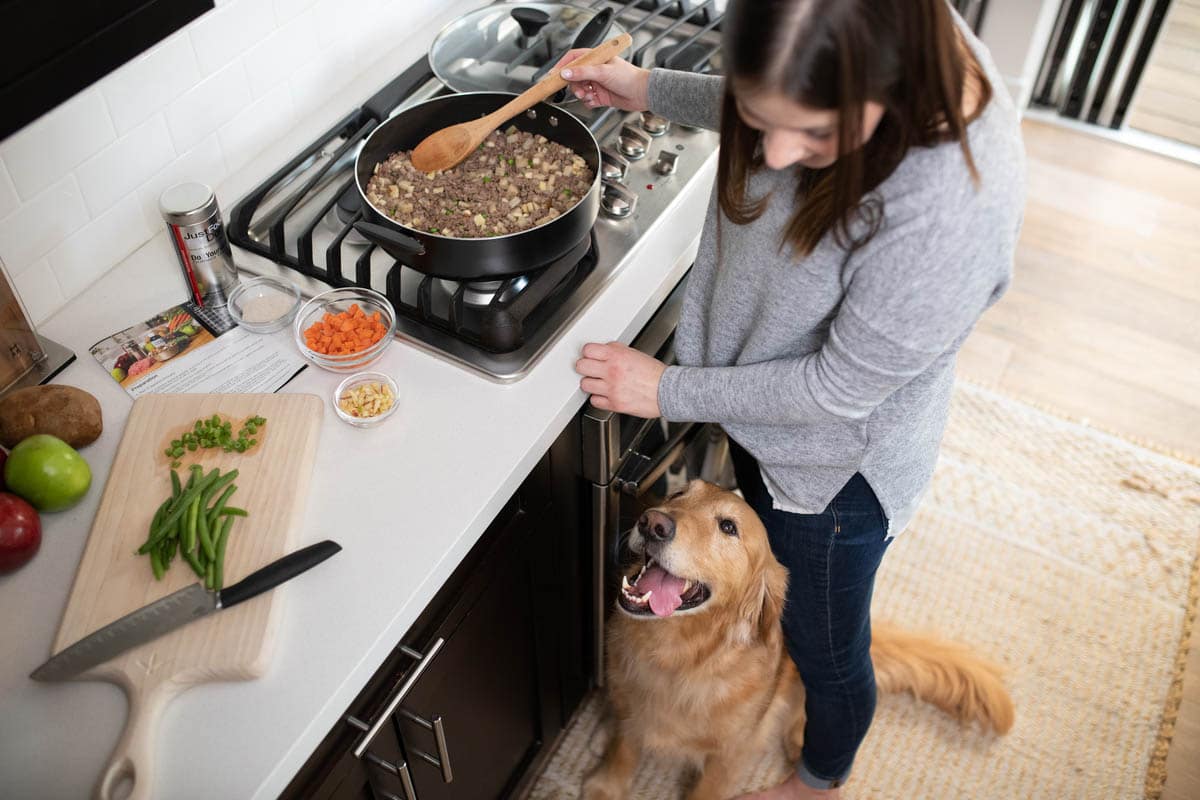Are Brussels Sprouts Good For Dogs?
These leafy little pieces of produce are a nutritious addition to your diet full of fiber, vitamins, and minerals, but are Brussels sprouts a good veggie for a dog’s diet?
Brussels sprouts have come a long way from being a boring holiday vegetable and are making waves on all kinds of menus. These leafy little pieces of produce are a nutritious addition to your diet full of fiber, vitamins, and minerals, but are Brussels sprouts a good veggie for a dog’s diet?
Can Dogs Eat Brussels Sprouts?
Yes, dogs can eat cooked, unseasoned Brussels sprouts safely in moderation. Raw Brussels sprouts can cause digestive issues, and seasonings may include ingredients that aren’t so good for dogs.
Plain, cooked Brussels sprouts, however, are perfectly safe to share with your dog and even have health benefits!
Health Benefits of Brussels Sprouts For Dogs
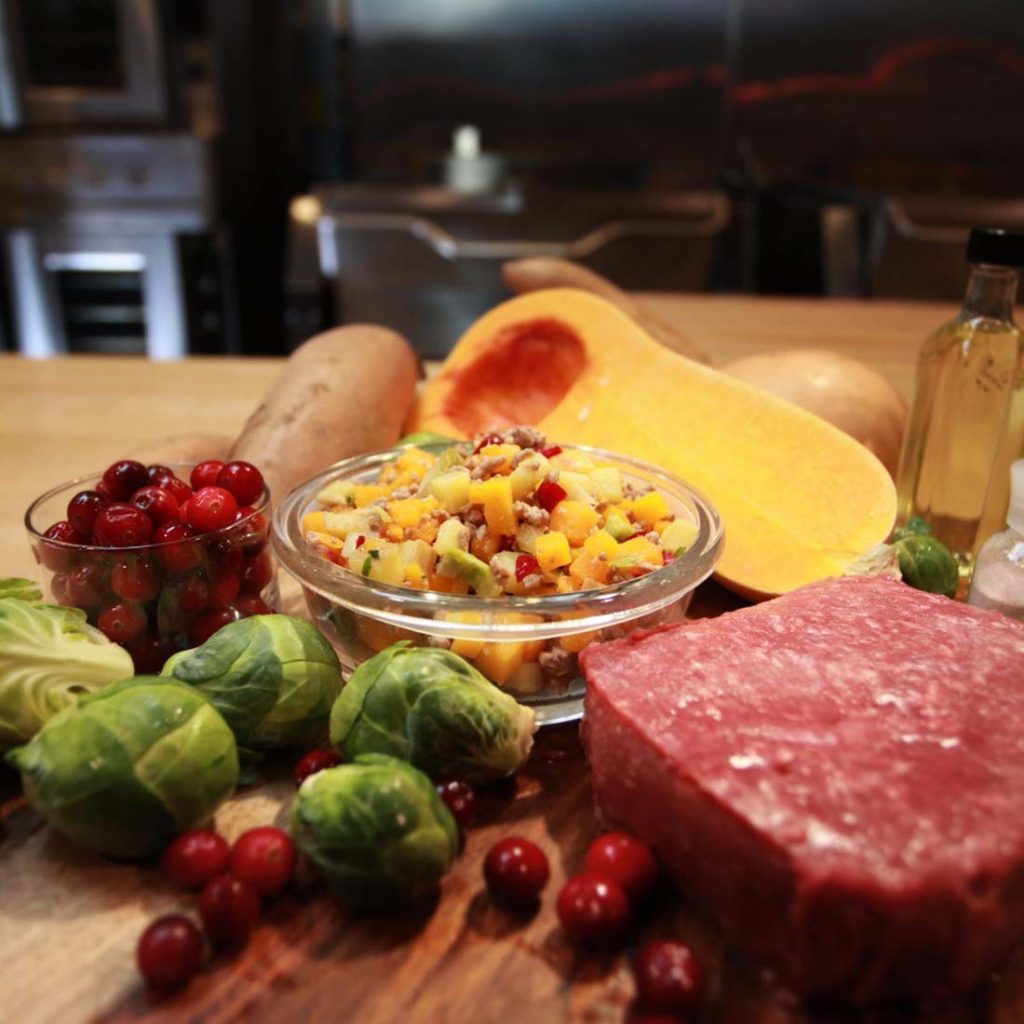
Brussels sprouts aren’t just tasty and filling. They’re full of nutritional benefits that support health and wellness for humans, many of which extend to dogs as well. Adding a few Brussels sprouts at mealtime can have a seriously positive impact on your dog’s health.
Low In Calories
When it comes to nutrition, brussels sprouts are a great bang for your buck! Low in calories (about 75 calories per cup), brussels sprouts are still high in nutrition. They have tons of vitamins, minerals, and antioxidants all packed into a delicious low-calorie veggie.
High in Fiber
Brussels sprouts have more than three grams of fiber in a single cup! Dietary fiber is essential for keeping your dog’s digestive system healthy and may help with avoiding digestive issues like upset stomach, difficult bowel movements, or diarrhea.
Full of Vitamins
If you’re looking for a vitamin-filled superfood, brussels sprouts are definitely it. They’re packed with vitamin A to support vision and bone health, and vitamin K for healthy blood circulation, and tissue, and to help prevent blood clotting. The vitamin C in Brussels sprouts helps support a normal inflammatory response and cognitive aging, while vitamin B1 plays an important role in converting food to energy.
Contain Antioxidants
Brussel sprouts are high in antioxidants and omega-3 fatty acids like alpha-lipoic acid (ALA), known to help lower glucose levels, boost your dog’s immune system, and help to reduce free radicals in your dog’s body. ALA may also help dogs with allergies or skin issues by preventing cellular damage.
Contain Essential Minerals
The layers of leafy greens that make up Brussels sprouts are a great source of minerals dogs need for a healthy diet. They contain manganese which activates enzymes to help support your dog’s metabolism and helps them absorb and digest other essential nutrients. The potassium in Brussels sprouts helps support heart, nerve, and muscle function. Calcium helps dogs build muscle and maintain healthy bones and teeth.
Can Dogs Eat Raw Brussel Sprouts?
Dogs shouldn’t eat raw Brussels sprouts since they can be a choking hazard or cause digestive issues when uncooked. Similar to other cruciferous vegetables like broccoli, cabbage, cauliflower, and kale, brussels sprouts contain a type of carbohydrate that can be difficult to break down, especially when raw. This can cause stomach pain, gas, diarrhea, or constipation in both humans and dogs. Making sure Brussels sprouts are thoroughly cooked will help avoid these issues.
Can Dogs Eat Brussels Sprouts Stalks?
While Brussels sprouts stalks aren’t toxic to dogs, they can be tough to chew and difficult to digest. Sometimes this can lead to intestinal blockage or other gastrointestinal issues for your furry friend like bloating, constipation, diarrhea, or vomiting.
The Downside of Brussel Sprouts
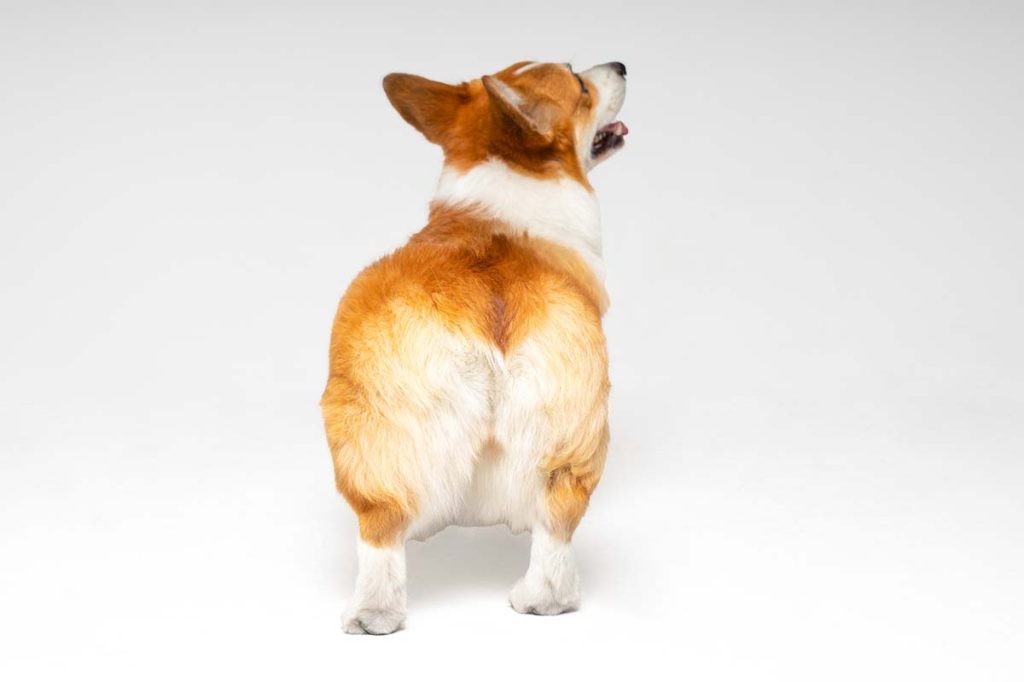
Like any fibrous food, one of the side effects of Brussels sprouts is that they can induce some pretty stinky farts. Their bitterness comes from isothiocyanates.
While they may not be the greatest-smelling after eating Brussels sprouts, flatulence in some dogs is actually a good sign. It means that the sprouts are doing their job and supporting healthy digestion, moving gas and waste through your dog’s system.
How To Serve Brussel Sprouts With Your Dog’s Food
Anytime you introduce a new food to your dog’s diet, it’s important to start slowly. Begin by sharing a small amount of new food at a time to be sure your dog doesn’t take issue with it.
To serve your dog Brussels sprouts, start by trimming the stalk and cutting off the little ‘nub’ at the end of the sprouts. Cut the sprout into halves, quarters, or even smaller pieces if your pup is on the smaller side. Make sure the Brussels sprouts are fully cooked by either baking or frying with a light amount of olive oil. Voila! The perfect fiber-filled veggie dog owners can add to their furry friend’s diet.
We feature Brussels sprouts in our Venison & Squash fresh dog food recipe, which dogs devour. The Venison recipe is a great option for raw dieters to transition to.
Related reading: DIY Venison Dog Food Recipe with Brussels Sprouts
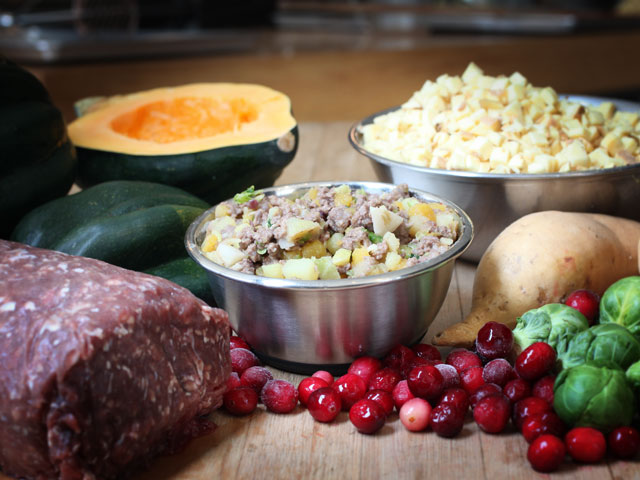
How Much Brussels Sprouts Should I Feed My Dog?
The amount of Brussels sprouts you give your pup will depend on the size of your dog and how much food they consume. You’ll probably want to share around three or four cooked Brussels sprouts with them at a time. Cut them into quarters or even smaller bite-sized pieces.
Owners of small dogs should give their pooch even fewer Brussels sprouts to avoid overwhelming their digestive system.
More Human Foods That Are Good For Dogs
Brussels sprouts aren’t the only human food that’s good for dogs. Here are more healthy foodstuffs that can add flavor and nutrients to your dog’s diet!
Pumpkin
Another great low-calorie food that’s also good for dogs, pumpkin is packed with potassium, vitamin A, vitamin C, omega-3s, and beta carotene for dogs’ eye health. Try JustFoodFodDog’s pumpkin dog treats, made with fresh, whole ingredients and absolutely no preservatives!
Sweet Potatoes
A great source of fiber and healthy carbohydrates, sweet potatoes also contain a host of vitamins that dogs need for a healthy diet, as well as calcium, potassium, and antioxidants like manganese.
Apples
Apples make a delicious, juicy treat for dogs, and they’re full of antioxidants and fiber. Be sure your dog is only eating the apple itself and not the core or seeds. The core and seeds contain trace amounts of toxins. You can feed your dog apple slices, applesauce, or even frozen apples!
Chickpeas
Chickpeas are in the legume family along with lentils and soybeans, and they’re a great source of vegetarian protein for both people and pups. They also contain iron, magnesium, vitamins A, B, and C, and have a high fiber content to promote healthy digestion.
This content is for informational use only and does not replace professional nutrition and/or medical advice, diagnosis, or treatment. It is not a substitute for and should not be relied upon for specific nutrition and/or medical recommendations. Please talk with your veterinarian about any questions or concerns.
